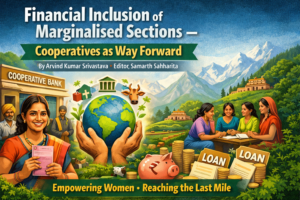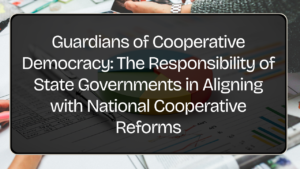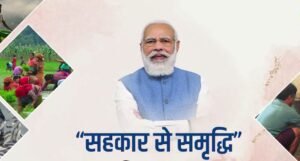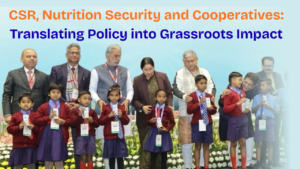
Santosh Kumar Sharma
Former Director NCDC & Freelance Writer
The world is in turmoil. Even the deaf and most ignorant can hear and visualize war cries almost in every corner of the globe. It may be war between Russia and Ukraine, Israel and Hamas and its allies, lurking danger of conflict with Iran and USA, China’s threat to Taiwan and support of some countries as a national policy favouring terrorists. Most disputes in the world emanate from a sense of establishing supremacy over the other. Some nations are shy of entering directly into the conflicts but provide moral and even logistic support to these endeavours. The example of Russia and Ukraine is a concrete example.
Most of the countries claim to be votaries of peace but this is only a façade of diplomacy. They discuss at length at various international forums to bring order to the world but even some genuinely sane voices are drowned in the ulterior motives of so-called developed and powerful nations. In addition to the armed conflicts, the trade war in very recent times is ready to give a big blow to the world economy. The resultant effect of these conflicts whether armed or economic can be seen in the deterioration in the lives of common men. The victim is always the general public.
Millions of personnel have killed each other although they had no personal enmity among each other. The reason, is the inflated egos of the leaders and as I have already mentioned above, establishing supremacy over the other or showing the world their power. The poor have always suffered due to not only armed conflicts but also man-made trade imbalances.
Is there going to be any respite from that situation? Would any good sense prevail among the leaders who claim to be pragmatic and ruling the presumably? The answer eludes me.
However, there is a way provided the world adopts the cooperative way of life in letter and spirit and takes some lessons from the life of Lord Ram.
I am quoting a few lines from the writings of the great Indian Socialist leader Mr. Ram Manohar Lohia-
“The life of Ram is an essay in expansion without
absorption. His exile was an occasion for unifying the country
under the hegemony of one centre of power’s story of expansion without absorption, of unification with imperialism, of limited personality at work in dynamic politics and international relationships, is ever attended by the search for friends of righteousness within the camp of the enemy. Ram was so out of the deliberated design and conscious purpose. Rules and the constitution were no doubt there to act as a measuring standard to enforce obedience. But this compulsion from outside would have been valueless if unaccompanied by a corresponding impulsion from within. External controls of the constitution and inward limits of the conscience reinforce each other. Argument concerning the primacy of either propeller would be idle; to the limited personality, the external rigours of the constitution would be but another name for the internal drives of conscience. A remarkable adjustment and parallelism of the two forces is a mark of the limited personality. Limitations are external controls but they also reach out into inward frontiers; the limited leadership is of course controlled leadership but it also reaches out into the domains of the spirit.
Ram was indeed a controlled individual, but it would be wrong to stop at that description of him, for he was limited individual, whose will ran parallel with the constitution.
If the leaders of the world can get some clues from the personality of Lord Ram, our posterity would be able to live happily.
Ram was an embodiment to cooperative philosophy. It seems that the cooperative principles adopted by the International Cooperative Alliance were just a replica of the way Ram lived and conducted his life. In my book “SAHAKARITA KE PRATEEK-RAM” I have dwelt extensively on the subject. The book is available on Amazon at some concessional price. I shall be giving the link of the book at the end of the article for interested readers.
Any conflict is associated with the word “Competition”, whether it is related to showcasing military power or showcasing its economic superiority. The word competition in cooperative system is replaced by “Co-existence” meaning thereby there is enough space for everyone.
The 191st hymn of the 10th Mandala of Rigveda, the last hymn of Rigveda explains the characteristics of a cooperative organization
“Sansamidyuvase vrishnannagne vishwanyarya aa.
Ilspade samidhyase sa no vasunya bhar” ll1ll
(O Fire, O strong one, as master thou unitest us with all things and art kindled high in the seat of revelation; do you bring to us the Riches.)
“San Gachchashvam San Vadashvam San Vo Manansi Janataam.
Deva Bhagam Yatha Purve Sanjanana Upasate” ॥2॥
(Join together, speak one word, let your minds arrive at one knowledge even as the ancient gods arriving at one knowledge partake each of his own portion.)
“Samano Mantra: Samiti: Samani Samanam Manah Saha Chittamesham.
Samanam mantrambhi mantraye vah samanen vo havisha juhomi” ॥3॥
(Common Mantra have all these, a common gathering to union, one mind common to all, they are together in one knowledge; I pronounce for you a common Mantra, I do sacrifice for you with a common offering.)
,“Samaani and Aakuti: Samaana Hridayaani Vaah.
Samanamastu vo mano yatha vah suhasati”॥4॥
(One and common be your aspiration, united your hearts, common to you be your mind, —so that close companionship may be yours.)
Mutual cooperation and not competition is the special feature of a cooperative organisation. The spirit of service is paramount and everyone is treated as equal. There is no discrimination between big and small and rich and poor. The basic plank of cooperatives is morality. It is necessary to understand that ideal equality is only possible and be synonymous with success, if we follow the principles of Cooperation. Like the Bhagwat Gita, cooperation believes and in the welfare of all.
According to a famous saying of Maharishi Ved Vyasa
“Tretayan Mantrashakti, Jnanashakti: Krte Yuge.
Dvapre Yudhshakti, Sanghshakti: Kalau Yuge”.
In Satyayuga knowledge was power, in Treta mantras held the power and in Dwapar the power was vested in defence superiority (in war affairs). But in Kaliyuga, the power shall be derived from Unity i.e. from organizational strength.
The character/demand of each era is different. Thus it can be said that the only way to lead a meaningful life in Kali Yuga is in cooperating. The maxim for Kalyuga is “United we stand and divided we fall”
The wisdom enshrined in our ancient scriptures including the Vedas is unanimous that the only way to peace, progress, prosperity, happiness and survival is through the system of cooperatives. Let the world follow the principles and san any dispute be it armed conflict or economic upheavals.
Link for ordering “Sahakarita Ke Prateek-Ram”
(https://www.amazon.in/dp/9385083937)
The author can be reached at
9811182144






